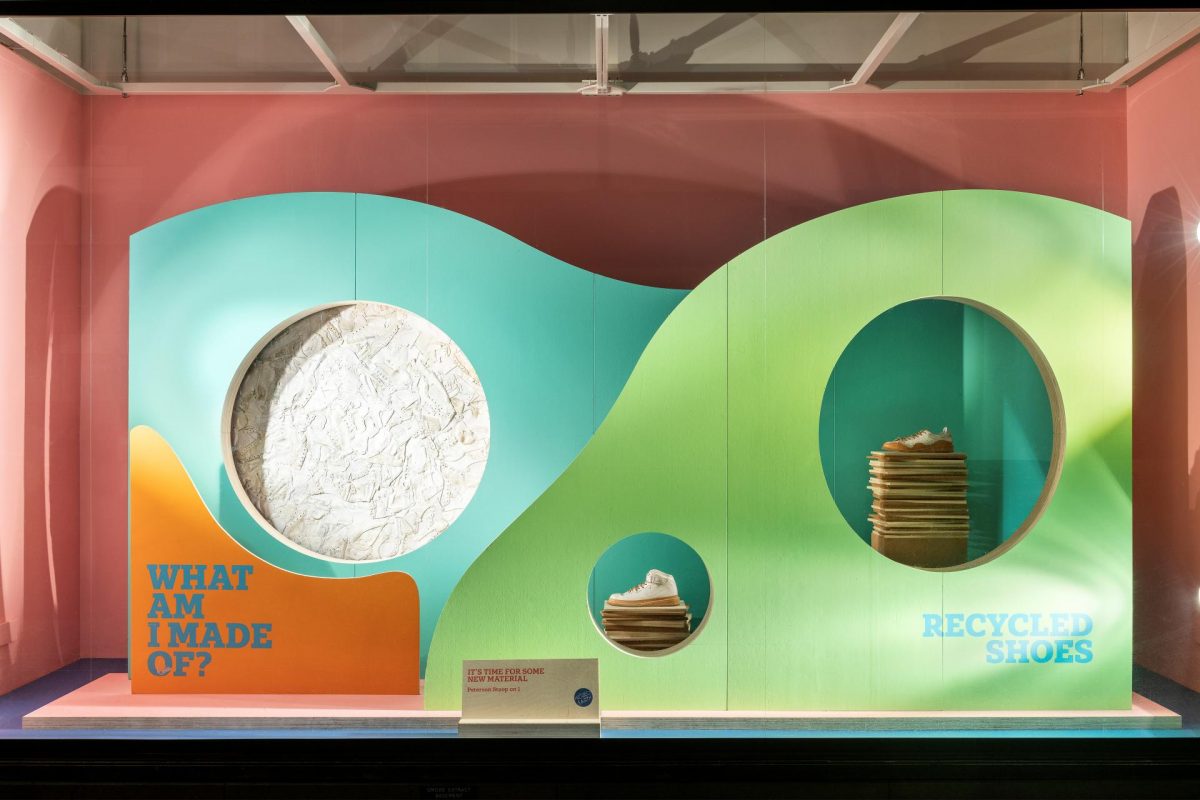Forget this season’s star merchandise. Selfridges’ latest windows look much further ahead, reflecting its new sustainability commitment towards 2025.
‘When sitting behind a screen it’s easy to become alienated from the real-world impact of your actions, whereas smart in-store retail makes for more considered human moments. Physical stores are also becoming far more than just points of purchase – more like experimental crucibles for innovative practices, ranging from environmental education to closed-loop design.’ These words are from Jonathan Openshaw’s essay back in Frame 130 (Sep/Oct 2019) on how physical retail stores can help to reshape consumer culture. There, we dissected various innovative in-store approaches – repackage, rescue, resell, redesign, repair, re-educate – that might make us rethink how we’re shopping.


And now, Selfridges is trying to tick all of those boxes – and announcing its very clear intentions from the footpath. The role of shop windows is changing, and a curated preview of a new season’s collection will no longer cut it. It’s a phenomenon only accelerated by COVID-19, which prompted some brands (Selfridges among them) to even make shoppable storefronts. But trying to sell products is no longer the sole goal – well, not explicitly anyway – as expressed in the London department store’s current windows for Project Earth. Instead, the storefront is about selling the entirely new way of thinking about retail that unfolds inside.
Bold imagery – a Selfridges shop windows trademark – grabs the attention of passers-by, who can then get up closer to discover its connection to an in-store initiative. Bright-yellow rubbish bins encircling a tree, for instance, are teamed with a plaque stating that Selfridges has been zero waste to landfill since 2014, while a hand-embroidered Selfridges bag promotes its repair stations.


As evident from the messages outside, the Project Earth campaign sets out to change the way we shop by centring on sustainability. Alongside the aforementioned repair stations, visitors will now find clothing rental, second-hand fashions, recycling and refilling stations, and sustainability-oriented events. Fashion houses like Prada are also on board, launching its sustainable Re-Nylon collection in the Corner Shop. This isn’t a seasonal strategy, but part of a longer term plan: Selfridges reports that it’s ‘working with all of its brands to question how things are made so that by 2025 the most environmentally impactful materials used throughout our business will come from certified, sustainable sources’.
When Selfridges put the wheels in motion for Project Earth over two years ago, it could hardly have anticipated that a global pandemic would hit before the launch date. But those behind the project feel COVID-19 has only increased its relevance. Anne Pitcher, managing director of Selfridges, revealed the end result with these words: ‘I think the pandemic has changed everybody’s thinking forever . . . people will care not only about how you do business, but how you place people and planet at the heart of your thinking.’

Time will tell how the coming years play out – which new additions and concepts will work, and which won’t. But after years of individuals complaining that companies should take their fair share of responsibility for sustainability and circularity rather than leaving things up to the consumer, it’s promising to see large retailers stepping up to the plate.

